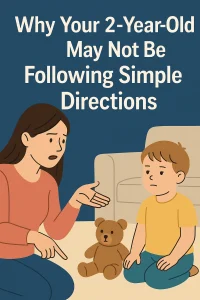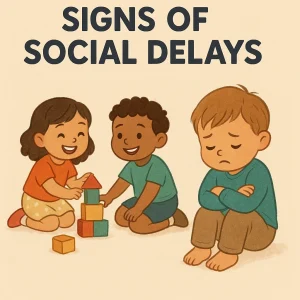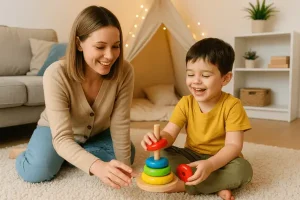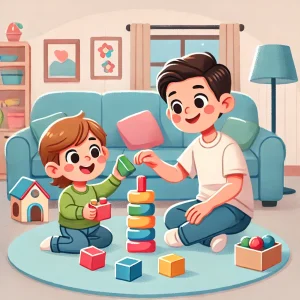6 Effective Ways to Boost Play Skills in Kids with Autism
Last Updated: October 1, 2024
Play is a joyful way for children to explore, connect, and express themselves. However, if your child has autism, you might notice that play doesn’t always flow naturally—and that’s perfectly okay. Kids with autism often face challenges in social and interactive play, preferring to play alone or engaging in repetitive activities. The good news? These play skills can be nurtured and strengthened. With the right guidance and strategies, your child can learn to enjoy playtime, connect with others, and build essential skills that support their social, cognitive, and emotional development.
1. Follow Your Child’s Lead
Every child has their own way of exploring the world, and this is especially true for children with autism. When trying to develop play skills in kids with autism, one of the most effective things you can do is to follow their lead. This means tuning into what your child naturally enjoys and letting their interests guide the play.
Does your child love lining up toy cars? Are they fascinated by building blocks or captivated by a particular cartoon character? These interests aren’t just random—they’re gateways to developing important play skills. Start by observing what your child gravitates towards. Whether it’s a toy, a game, or even a certain type of music, pay attention to what brings them joy. When you follow their lead and engage in activities they are already drawn to, play becomes more comfortable and meaningful for them. And this is where the magic of growth happens.
Engaging Tip: Watch and Join
Instead of steering your child towards new toys or activities, begin by sitting alongside them. Watch how they play, and then gently join in. If your child likes to spin a toy top, sit next to them and spin one too. If they’re engaged in a pretend play scenario, like feeding a doll or driving a toy truck, copy their actions or gently add to the storyline. This shared focus—known as joint attention—can be a powerful way to improve play skills in autistic children.
By engaging together in a shared play activity, you create a moment of connection and communication. It could be as simple as making eye contact while you play or exchanging a smile as you take turns stacking blocks. This connection forms the foundation for your child to develop not just play skills but also social and communication abilities.
Why Following Their Lead Works
When children with autism are allowed to play with what they love, they are more likely to open up, explore new actions, and enjoy interactions. They learn to associate playtime with positive feelings, which boosts their confidence and willingness to try new play skills over time. It also helps them practice social skills such as taking turns, sharing attention, and understanding others’ actions—all key milestones for developing play skills for autistic children.
Joint attention activities, where both the parent and child are engaged with the same toy or task, are particularly helpful. For instance, if your child is interested in a toy train, join them by adding more tracks or pushing the train along with them. You can also describe what you’re doing or ask questions about the play. This not only encourages interaction but also helps to build language skills.
Also read: Online Behavioral Therapy for Kids with Autism
2. Introduce Turn-Taking Games
Turn-taking is a foundational skill that plays a big role in social interactions and play skills in children with autism. Introducing turn-taking games can be a fun and effective way to enhance social play and teach kids the concept of “my turn, your turn.” By learning how to take turns, kids not only build play skills but also learn how to communicate and connect with others.
Why Turn-Taking Matters
Many children with autism may struggle to share or wait for their turn, but practicing these skills can help them understand the back-and-forth nature of social interactions. Think of it as a simple way to build patience, improve play activities for children with autism, and encourage smoother play sessions with peers or family members.
Simple Turn-Taking Games to Try
Here are some easy, low-prep activities you can try at home to introduce turn-taking:
- Ball Tossing: Use a soft ball and sit on the floor facing your child. Take turns tossing or rolling the ball back and forth. You can add simple phrases like “Your turn” and “My turn” to help your child associate words with actions. If they are non-verbal, use hand gestures or facial expressions to indicate whose turn it is. This simple play activity is a great way to reinforce the concept of turn-taking and help your child engage in interactive play.
- Board Games and Card Games: Classic games like “Connect Four,” “Snakes and Ladders,” or simple card games like “Memory” are excellent for practicing turns. Start with easy-to-understand rules and keep the game short to maintain your child’s attention. Over time, these games help to improve play skills in children with autism by teaching patience, rule-following, and focus.
- Beanbag Tossing or Ring Toss: Set up a target (like a bucket or a hula hoop) and take turns tossing beanbags or rings. These activities are simple to play, and kids can quickly learn to wait for their turn. Plus, they encourage hand-eye coordination, which can enhance play skills further.
The Power of Non-Verbal Cues
If your child struggles with verbal communication, don’t worry—non-verbal cues can be just as effective in turn-taking. Use gestures like pointing, smiling, or nodding to indicate whose turn it is. For example, after tossing the ball, make eye contact with your child and smile, signaling that it’s their turn to toss it back. These small cues help improve social play and build understanding without the need for words.
Building Social Play Skills, One Turn at a Time
The more your child practices turn-taking, the more natural it will become. Gradually, they will learn to anticipate and respond during play activities, enhancing their overall social play. These activities are not just great for playtime—they help boost play skills in children with autism in a way that’s both fun and meaningful.
3. Model Play Behaviors and Speech
One of the most powerful ways to support autism play development is to model the behaviors and speech you’d like to see your child use. When children with autism observe how play works and how others interact, they start learning social cues, communication patterns, and turn-taking without even realizing it. This kind of play modeling is a gentle yet effective method for improving play skills in autism.
Why Modeling Works
Kids often learn best through imitation, and this is especially true for those on the autism spectrum. By watching how you or another peer play, they can pick up on new ways to interact with toys, use their imagination, and communicate verbally and non-verbally. Over time, this exposure helps your child practice these new skills during their own playtime.
Engaging Tip: Simple Ways to Model Play
You don’t need elaborate setups to model play. Here are a few easy and fun activities that can help demonstrate positive play behaviors and speech:
- Playing House or Pretend Scenarios: Set up a pretend play scene like a kitchen, doctor’s office, or store. Model how to act out these roles by making pretend food, giving a stuffed animal a check-up, or pretending to buy items. This type of role-playing helps children learn about social situations, basic routines, and encourages their imagination.
- Building with Blocks or Puzzles: If your child likes to build things, use blocks, LEGO sets, or puzzles to play together. While you play, narrate your actions like “I’m putting this block on top” or “Let’s match this puzzle piece.” This helps your child not only learn the skills needed to play but also associate words with actions, aiding in language development.
- Action Figures and Toy Cars: Use toys that your child already enjoys. For example, if they have an interest in toy cars, model how to “drive” them along tracks, make them stop at “traffic lights,” or race together. For dolls or action figures, show how to make them “talk” to each other, go on adventures, or even care for each other. These play scenarios allow your child to learn how to engage and expand their creativity.
When Peer Modeling Isn’t an Option
If there aren’t siblings, friends, or other kids around to model play, don’t worry. Videos of children playing can also be an excellent resource. Watching videos showing kids engaging in different types of play can provide your child with social learning opportunities. YouTube channels, therapy videos, or educational programs often show children role-playing or engaging in group activities. This exposure can help your child observe how to take turns, share, or initiate play with others.
How Can I Improve Play Skills in My Autistic Child?
As a parent, one of the most effective ways you can improve play skills is to be a model yourself. Engage in the activities that your child enjoys, show them how to use toys in new ways, and offer verbal cues that support their learning. By demonstrating and actively participating, you create a supportive environment for them to develop new play skills, explore social play, and enjoy the many benefits of play.
Simple Play Ideas for Different Age Groups
| Age Group | Play Idea | How It Helps |
|---|---|---|
| 1-3 years | Stacking Blocks | Encourages development of fine motor skills, hand-eye coordination, and introduces turn-taking by passing or stacking pieces. Also helps with problem-solving as the child learns to balance the blocks. |
| 3-5 years | Pretend Play (with Dolls or Figures) | Stimulates creativity and imagination by allowing kids to create different scenarios (e.g., feeding a doll, driving a toy car). Helps practice social roles and builds language skills as they talk through scenarios. |
| 5-7 years | Simple Board Games (like Memory, Snakes & Ladders) | Teaches essential social skills like patience, taking turns, and following rules. Encourages focus and cognitive skills, as well as provides an opportunity to practice winning and losing gracefully. |
| 7+ years | Team Games (e.g., Tag, Hide and Seek) | Enhances group play and cooperative skills by involving other children, promoting physical activity, and boosting social interaction. Teaches teamwork and builds communication as kids coordinate with each other. |
Also read: Home-based Occupational therapy activities for Autistic Children
4. Encourage Pretend Play and Imagination
Imaginative or pretend play is more than just fun—it’s a powerful way for kids to learn creativity, problem-solving, and social skills. For children with autism, pretend play might not come as easily, but it can be nurtured with the right support. By encouraging pretend play, you’re promoting play interactions in children with autism and helping strengthen their social skills, language, and understanding of the world around them.
The Benefits of Pretend Play for Children with Autism
Pretend play allows children to explore different roles, scenarios, and experiences. It helps them practice understanding feelings, routines, and social interactions in a safe, playful setting. For example, pretending to be a chef, a teacher, or a superhero can help your child learn about those roles while having fun. Imaginative play also offers a way to build language skills, as children learn to express ideas, emotions, and narratives through their play.
While some children with autism might engage in pretend play differently (such as using a toy in a repetitive way), that’s okay. It’s all about starting from where they are and gently guiding them toward more imaginative forms of play.
Engaging Tip: Start Simple and Build Up
One of the easiest ways to encourage pretend play is to use toys or themes your child is already interested in. If your child likes cars, you can start by mimicking driving sounds, lining up the cars as if they’re in traffic, or creating a simple story around a car race. If they have a favorite stuffed animal, you can pretend to “feed” it, give it a bath, or tuck it into bed. These actions may seem small, but they lay the groundwork for imaginative play.
The key is to break down pretend play into small, manageable steps. For example:
- Step 1: If using a doll, start by showing your child how to feed the doll with a spoon.
- Step 2: Once they are comfortable, add another layer, like pretending to talk to the doll or put it to sleep.
- Step 3: Gradually introduce new scenarios, like taking the doll to the park or giving it a check-up as a doctor.
5. Organize Play Dates and Group Activities
Social interaction is key for every child, and for kids on the autism spectrum, learning to play with others is an important step in developing play skills, social cues, and cooperative play. Organizing play dates or group activities is one of the most effective ways to improve play in autistic kids, helping them learn how to share, communicate, and enjoy the presence of their peers.
Why Group Play Matters
Playing alongside other children exposes your child to different ways of interacting, from taking turns to understanding boundaries and feelings. It helps them build connections, practice social play, and experience teamwork—all vital skills as they grow.
However, not all play needs to be highly interactive right away. For many children with autism, the idea of engaging directly in a group setting can feel overwhelming. That’s why it’s helpful to start with “parallel play”—where your child plays near other kids but isn’t necessarily interacting directly with them. Parallel play allows your child to become comfortable in the presence of other kids, observing how they play without the pressure to engage right away.
Engaging Tip: Organizing Play Dates and Group Activities
If you’re thinking of setting up a play date, keep it small and structured to begin with. Here are a few ideas:
- Start with One-on-One Play: Invite one child over for a short play session. This helps your child get used to interacting with peers in a safe, familiar space. Pick activities that are simple and don’t require too much back-and-forth, such as building blocks side by side or playing with sensory toys.
- Try Activities with Slightly Younger Children: Playing with younger kids can make social play easier, as the developmental gap may make it simpler for your child to keep up and join in. The goal is to boost their confidence and help them feel more comfortable around other children.
- Choose Familiar Environments: Pick places where your child feels at ease, like a favorite playground, park, or even at home. A comfortable environment can make a huge difference in how your child reacts and plays with others.
Group Play Ideas to Encourage Social Skills
Once your child is comfortable with parallel play, you can gradually introduce more interactive games. Here are some fun play activities for children on the autism spectrum to try in a group:
- Storytime with Role-Playing: Choose a short story that all the kids know and act it out together. Assign simple roles to each child (like being a cat, a tree, or a character from the story) to practice turn-taking and following a storyline.
- Art and Craft Activities: Set up a craft station with simple materials like paper, markers, and stickers. The goal is to allow each child to create something while sitting together. Encourage them to share supplies and compliment each other’s work to foster positive interactions.
- Music and Dance Time: Put on some fun music and let the kids dance around or play musical instruments together. It’s a great way to bond without the need for structured conversation, and the rhythm and movement can make social play feel more natural.
6. Reinforce Positive Play with Praise and Encouragement
Encouraging your child during playtime can make a big difference. For kids with autism, positive reinforcement—like praise and gentle encouragement—helps them feel good about what they are doing and motivates them to keep trying. It’s all about making playtime fun, comfortable, and full of little wins.
Why Encouragement Helps
Whenever your child makes an effort to play, it’s important to recognize it. Praising small achievements like sharing a toy or playing with others lets your child know they’re doing great and helps build their confidence. This makes them more likely to keep playing and learning.
Engaging Tip: Celebrate Every Little Step
You can encourage play in many simple ways:
- Verbal Praise: Use short, positive phrases like “Great job taking turns!” or “You’re doing amazing with those blocks!” Be specific, so your child understands what they did well.
- Stickers and Small Rewards: A sticker, token, or stamp can be a fun way to reward your child. Create a chart where they can earn stickers for good play behaviors like sharing or trying something new.
- Extra Play or Treat Time: If your child loves a particular snack, toy, or activity, let them have it as a reward for their progress during play. Even a few extra minutes of their favorite activity can be a big encouragement.
Take It Slow and Stay Positive
It’s okay if progress is slow. Every child learns at their own pace, and that’s perfectly normal. If they take even a small step, like sharing for a moment or playing next to another child, praise that effort. Remember, play is a journey, and every little win deserves celebration.
For more simple ideas on how to encourage your child during playtime, Wellness Hub provides support and tips to help you make play a positive experience for your child.
Conclusion
Encouraging play skills in children with autism can lead to significant improvements in their social, communication, and motor abilities. Each small step—like sharing toys or engaging in pretend play—brings them closer to achieving new milestones. It’s important to be patient and celebrate even the smallest victories. Keep experimenting with different play activities and enjoy these moments together.
If you’re looking for more support, Wellness Hub offers personalized resources and guidance. Every child learns in their own unique way, so finding what brings them joy is crucial. Remember, small steps create big changes. Keep exploring and celebrating each success!
Frequently Asked Questions:
1: How can I improve play skills in my autistic child?
To improve play skills, start by engaging with activities your child enjoys. Follow their lead, introduce turn-taking games, model desired play behaviors, encourage pretend play, organize playdates, and use positive reinforcement to celebrate their progress.
2: What are the best play activities for children with autism?
Some great play activities include simple turn-taking games, building with blocks, sensory play, pretend play with dolls or toy cars, and structured play with peers. The key is to find activities that match your child’s interests and developmental stage.
3: How does play help children with autism develop social skills?
Play encourages children to learn social skills like sharing, taking turns, and understanding emotions. It also helps them improve communication and learn to connect with others, making it a crucial part of their overall development.
4: How can I encourage my autistic child to play with other kids?
Begin by introducing parallel play, where your child plays alongside other kids without direct interaction. Gradually involve them in simple group activities like craft-making or ball games. Organizing smaller playgroups and being patient can make group play easier for your child.
5: What role does pretend play have in developing play skills in autistic children?
Pretend play helps boost imagination, creativity, and social understanding. It allows children to explore different roles and routines, which can help them practice social interactions in a fun and low-pressure way.
6: What are some simple ways to reinforce positive play skills?
You can use verbal praise, small rewards like stickers, or offer preferred activities as encouragement. Celebrating every little achievement, like taking turns or sharing a toy, makes playtime enjoyable and motivates your child to keep improving their play skills.
7: How important are group activities for developing play skills in autistic kids?
Group activities help children with autism learn how to interact, share, and cooperate with others. It’s an effective way to build their play skills and social awareness. Start with simple activities and gradually involve your child in more interactive play with peers.
8: How can I support my child’s play development at home?
To support play development at home, create opportunities for interactive play like turn-taking games, role-playing scenarios, and arts and crafts. Engage in activities together and model positive play behaviors to help your child learn.
9: What are some tips for making playtime more engaging for my child with autism?
To make playtime engaging, use toys or activities that your child naturally enjoys. Keep play sessions short and focused, gradually introducing new elements as they grow comfortable. Use praise and encouragement, and ensure the play environment is calm and distraction-free.
10: How can I help my autistic child transition from solo play to more social play?
Begin by playing alongside your child without demanding direct interaction, known as parallel play. Slowly introduce activities that involve simple back-and-forth interactions, like rolling a ball or passing a toy. As they become comfortable, you can encourage more cooperative play by inviting a peer to join and guiding them through shared activities.
About the Author:
Anuradha Karanam
Speech-language pathologist (7+ years of experience)
Anuradha Karanam is a skilled speech-language pathologist with over 6 years of experience. Fluent in Tamil, Telugu, Hindi, and English, she specializes in parent counseling, speech sound disorders, fluency assessment, and speech-language evaluations. Anuradha excels at working with children with developmental disorders, offering creative and effective therapy programs. Currently, at Wellness Hub, she holds a BASLP degree and is registered with the RCI (CRR No A85500). Her patience, ambition, and dedication make her a trusted expert in her field.
Book your Free Consultation Today
Parent/Caregiver Info:
Client’s Details:
* Error Message









